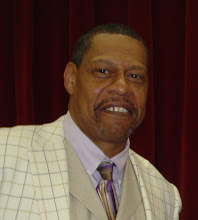This line always comes to mind when I think about the American economy. The designers of this “economy” have wrapped so many layers on top of layers that I don’t think anyone truly understands it. Oh sure we have these “leading economists” and scholars who pontificate on the inner workings of capitalism, but I have come to believe they are no more reliable than the local weatherman. The problem with an economy as complex as ours is that no one can truly predict how one component will truly affect another. They have their theories and their models, but the reality is they don’t have a clue. The sad part about it is they don’t have to. Most average folks don’t understand it and have no desire to learn about it. For them if they go to work, get paid, and can pay their bills the economy is working.
The truth however is that it isn’t that simple. There are economic hurdles strategically placed to ensure that those with capital are able to increase it at the expense of those who don’t. While we claim a free-market enterprise, we really don’t practice it. We have created so many layers on top of each other without any insulation or safety nets that collapse is inevitable. The reason there is no insulation or safety nets is because Americans do not save money. If the American consumer saved money not only would they provide insulation and a safety net for themselves, but also it would force the financial markets to do likewise. Instead of promoting savings our markets have promoted spending, but not only spending but debt spending.
Think of it as getting the sacrifice of U.S. soldiers and the obliviousness of U.S. shoppers a little more in sync. The non-relation between expensive wars and exempt non-warriors, a mirage Bush has fostered, has become unsustainable.
Roach estimated U.S. net national savings at a tiny 1.4 percent of national income and household debt at 133 percent of personal disposable income. That last figure means middle class families are tapping into home equity - borrowing against their homes - to buy their kids socks. And if they can't pay the resulting never-sleeping debt, they lose not a room or two, but the house.[1]
So we have many people who have spent more than they could ever hope to repay based on market assumptions that could never have been met. The whole Bush recovery was based on lies, it was predicated on the continued debt spending of not only the American public, but also the American business community and government. In an economy that is built on false assumptions on top of other false assumptions when one of those false assumptions finally is proven false it takes the others with it. The false assumption that was exposed by the sub-prime crisis is not the only one and as we are seeing the whole economy is at risk. We are in the beginning of a recession; the only question now is how deep and for how long.
I read a piece in the NY Times about how we were not suppose to have any more deep and long-lasting recessions. The very problems our economy is dealing with today are the ones we were supposed to be able to avoid through business efficiency and lessons from past mistakes. The current crisis is based on market speculation. You remember the same thing that has caused previous recessions and the creator of the depression, so I guess the learning the lessons of the past is not reliable. According to the article, because of our economic moderation principles we were not going to experience the type of collapse we are seeing today, so much for moderation.
America does not know moderation. From a President that believes you can wage war without concerns for the economic repercussions to the homeowners and credit card holders who believe that consumption is the answer to all of life’s problems, we don’t do moderation very well. Now greed and conspicuous consumption we do those really well. And that is why the answer to our economic crisis in Washington is to promote more spending. I got it, let’s give out rebate checks for more spending to stimulate a broken economy. The answer to our current situation is not more spending it is more saving. We cannot continue to spend money like drunken sailors, it is time to bite the bullet and make the difficult choices that Bush and company have managed to stave-off for eight years.
For some odd reason saving money in America has gotten a bad name, the corporate profiteers have convinced Americans that we have an infinitely expanding economy, just like the universe and if we just keep feeding the engine of consumption it will continue to expand. I am not an economics professor or a Nobel Prize winner, but I can see the fallacy in that, I wish more of my fellow citizens could see it as well. The lessons learned by the survivors of the Great Depression have been lost on the “boomers”, we must as a nation begin to save money and provide better insulation of our markets. We must stop our addiction to debt spending both institutionally and individually. The problems of our economy may be complicated but the solution isn’t. Save money!
[1] http://www.nytimes.com/2008/01/21/opinion/21cohen.html
Thursday, January 24, 2008
A Riddle Wrapped in Mystery, Inside an Enigma
Posted by
Forgiven
at
8:22 AM
![]()
Labels: Bush Administration, Debt-Spending, Economy, Mortgage Crisis
Subscribe to:
Post Comments (Atom)







 Stumble It!
Stumble It!
No comments:
Post a Comment